Ethical Leadership: ACS Case Study on Mandy's Workplace Dilemma
VerifiedAdded on 2022/11/28
|5
|999
|78
Case Study
AI Summary
This case study presents Mandy's ethical dilemma where she discovers employees accessing restricted websites using office computers. Mandy's manager tasks her with identifying the employees, leading to a conflict between her ethical obligations and potential consequences for the employees. The case study applies Chris MacDonald's methodology for resolving ethical issues, emphasizing the importance of clear workplace rules, employee involvement, and defined consequences. The solution advises Mandy to ensure employees are aware of ACS codes of ethics and professional conduct, communicate with the offenders, and encourage the management to formalize the rules. The study highlights the significance of competence, honesty, and professional development within the workplace, referencing relevant ACS codes and providing a framework for ethical decision-making in similar situations. The case study also emphasizes the importance of communication between Mandy and the management to address the issue effectively. The analysis further suggests a one-on-one session with the defaulters to make them aware of their mistakes and the possible penalties.
1 out of 5
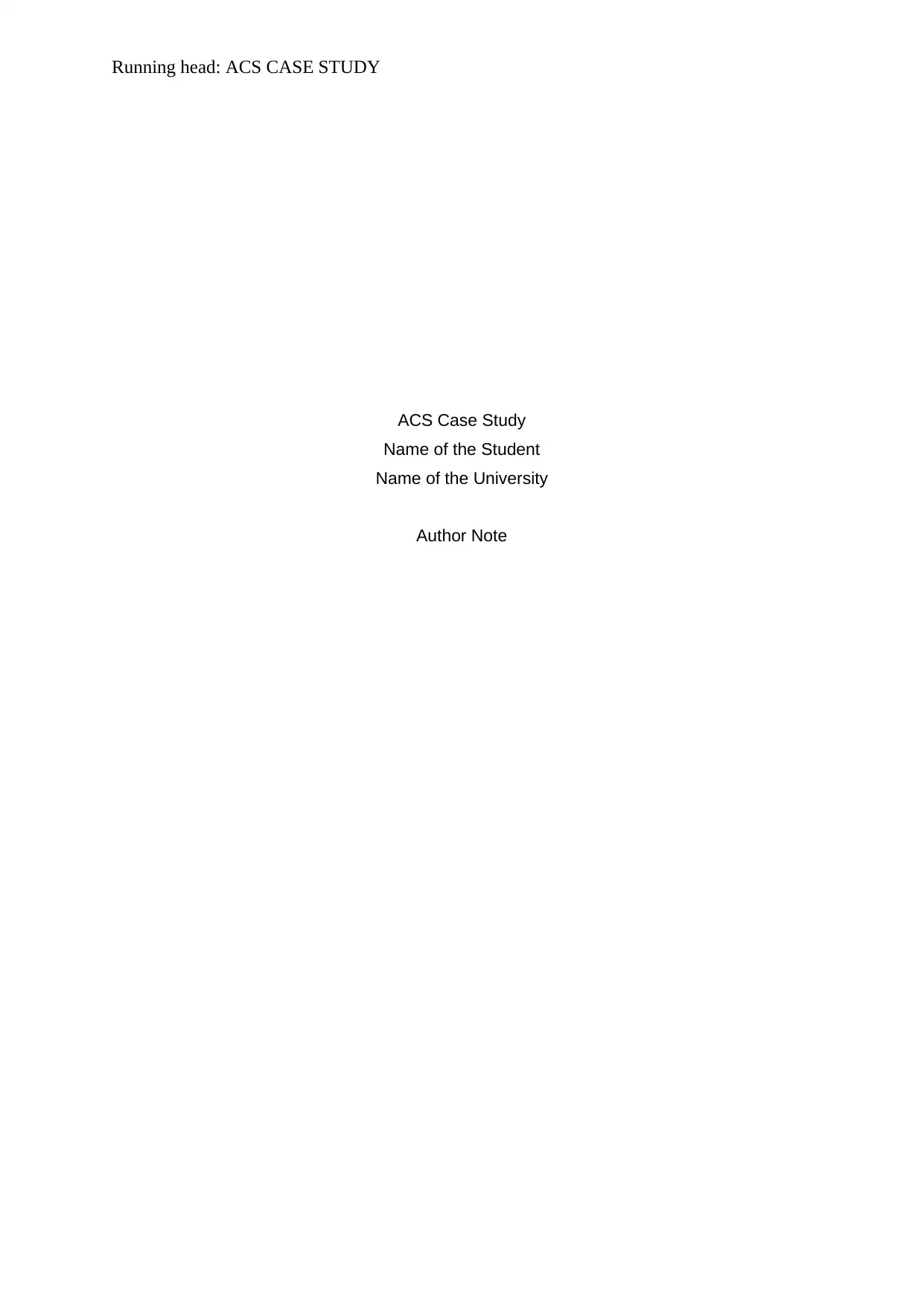
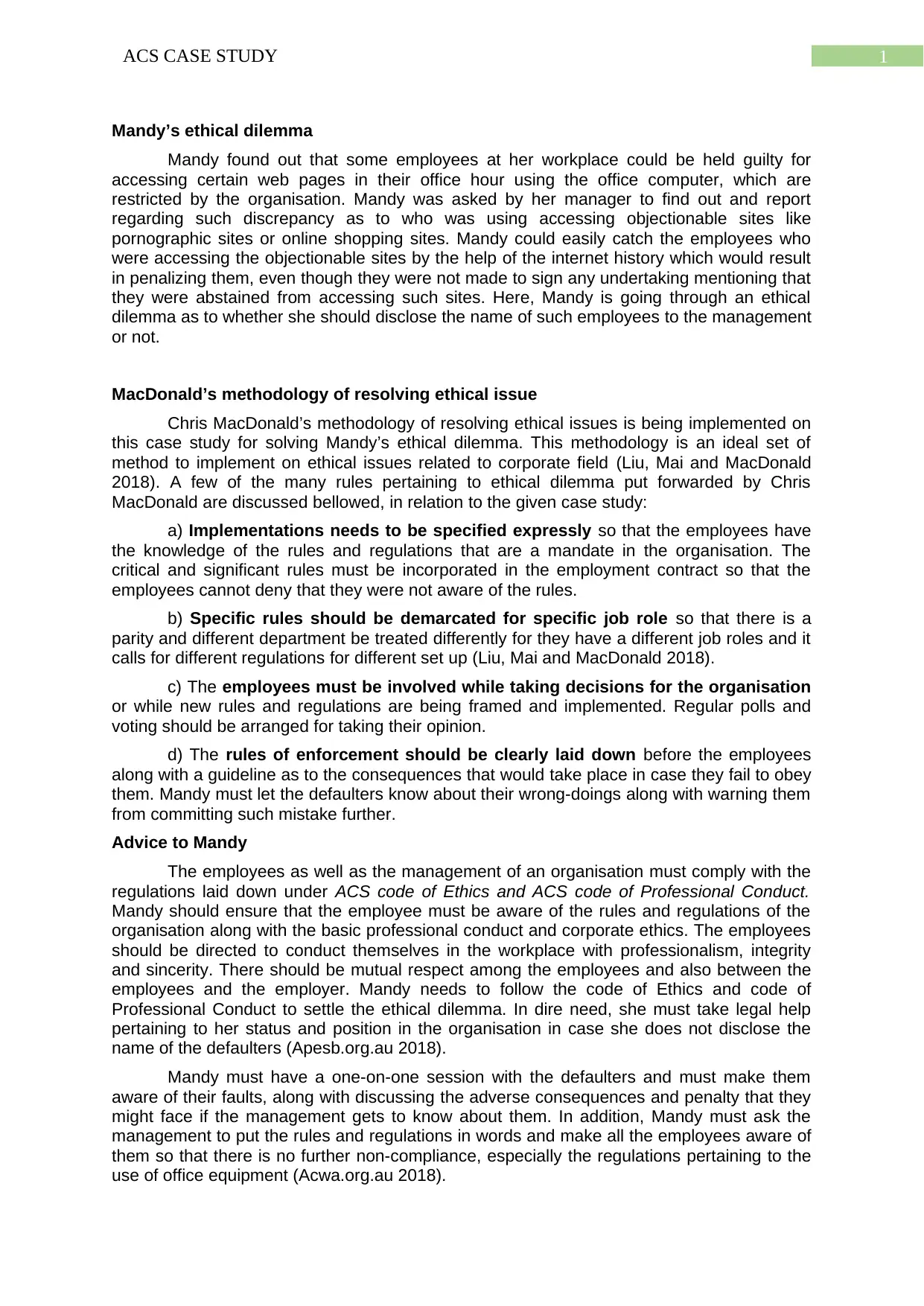
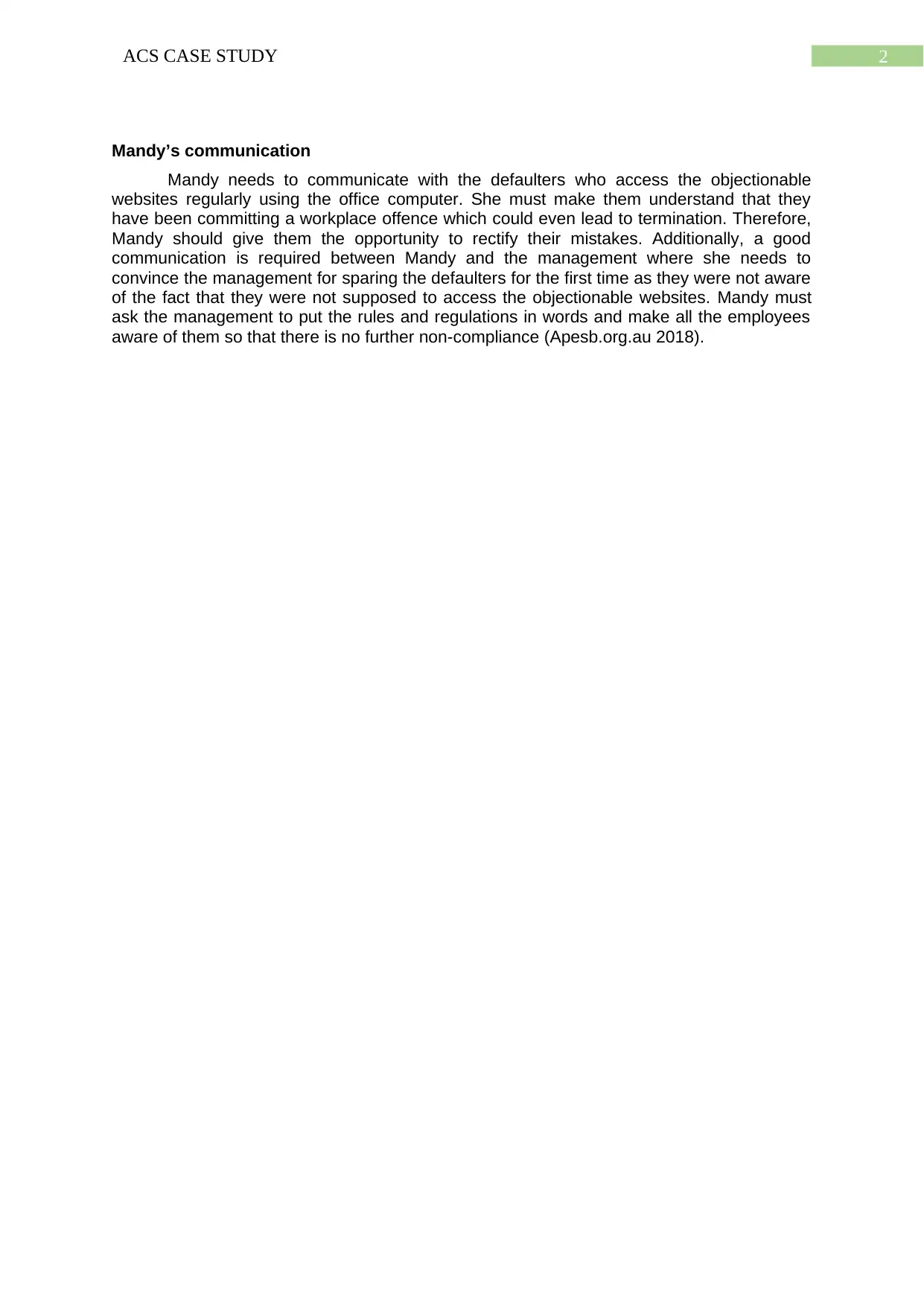

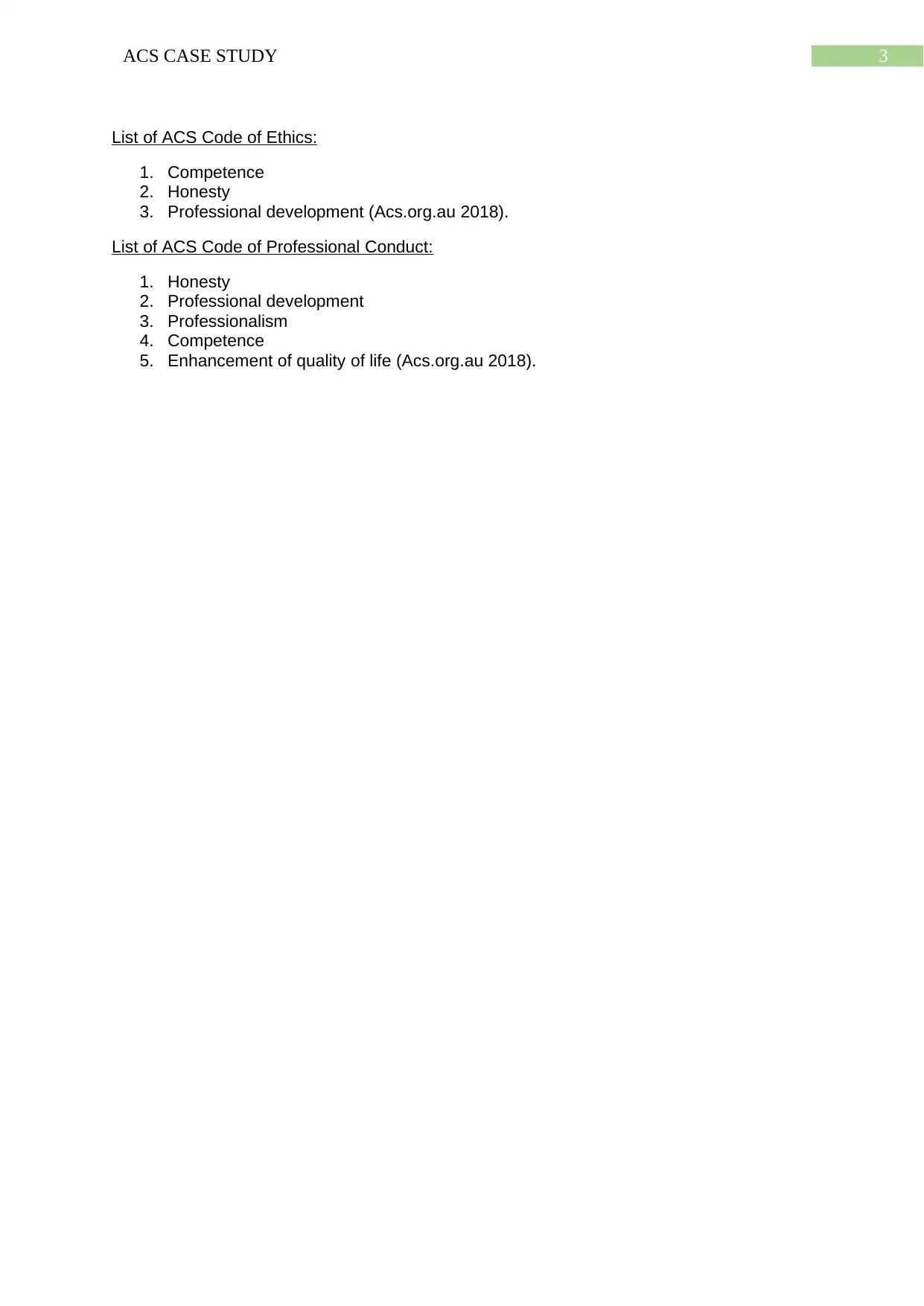
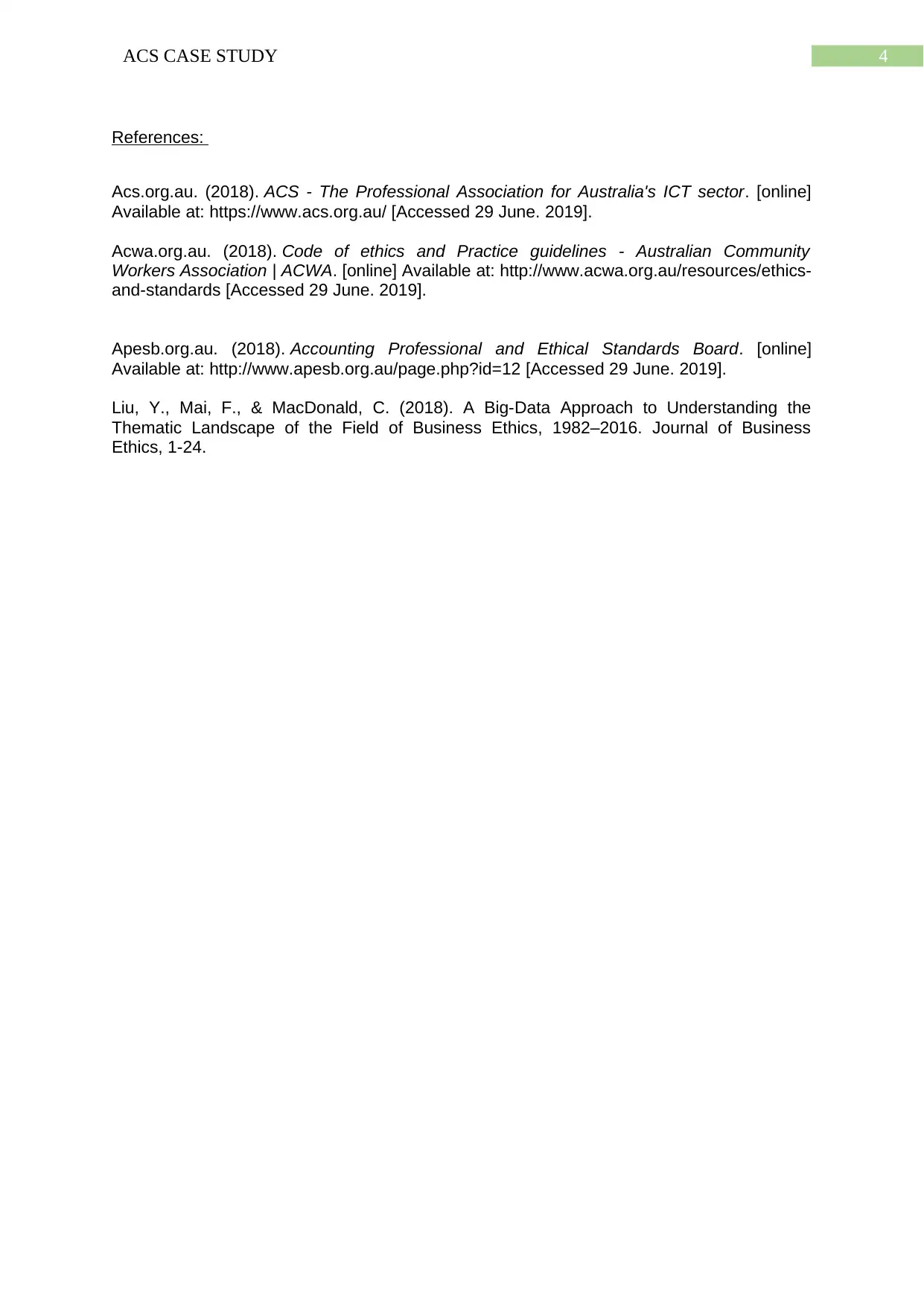






![[object Object]](/_next/static/media/star-bottom.7253800d.svg)